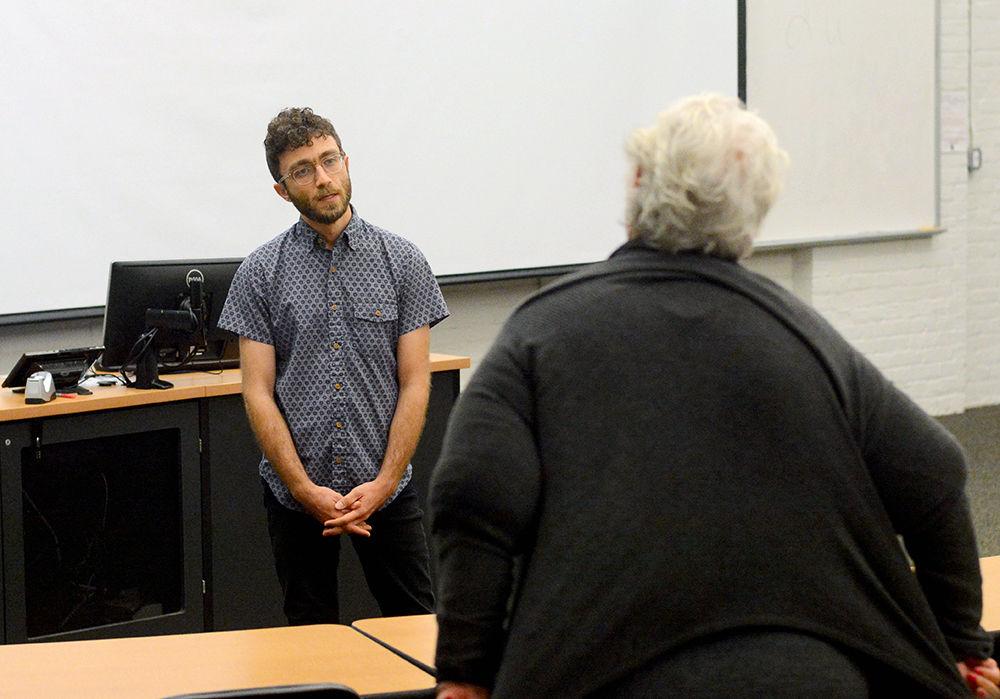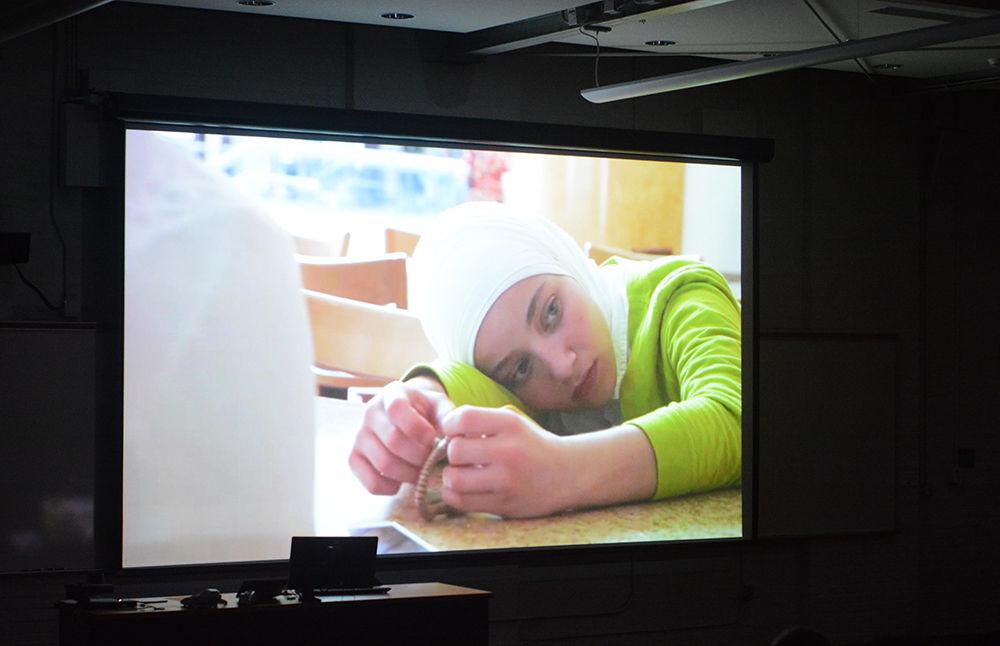“Dalya’s Other Country,” a documentary following the story of a family after fleeing the war in Aleppo, Syria, was screened on Oct. 9 along with a discussion led by co-producer Mustafa Zeno.
Hosted by the Moise A. Khayrallah Center for Lebanese Diaspora Studies, Honors and University Fellows Program and the Middle East Studies Program, students and nonstudents alike watched the hour-long film showing a piece of the story of those displaced by the Syrian conflict.
Kristen Porter, a university program associate at the Khayrallah Center, describes how the film screening was organized.
“We went through an organization called Good Docs, and basically they contacted Mustafa directly and indicated that we wanted to bring him here and they worked out the scheduling of when he was available and when we could secure a room for the event,” Porter said.
According to Porter, Good Docs facilitates getting documentaries to institutions and they also facilitate talks if the institution wants to bring in either a producer or director to discuss the film or hold a lecture.
“We usually try to get a lot of students interested as well as community members, so we look to interest a wide variety of audience,” Porter said.
Mustafa Zeno, co-producer of “Dalya’s Other Country,” filmmaker at Ol’ Haag Productions, producer at Clockshop Productions and elder brother of Dalya, describes the planned screenings of the film.
“We have an educational distributor that deals with these things and they’re the ones that made the connection, and they figured out everything with each other and asked me if I was available,” Mustafa said. “I was like ‘for sure,’ I’ve never been to North Carolina, I’ve never been to Raleigh and also I have a friend here in Raleigh so I was like ‘yeah, I would love to.”
The documentary will be traveling far in the next week as part of the Southern Circuit Tour of Independent Filmmakers, which brings the best of new independent film to communities across the South.
“The film itself is going to many different universities,” Mustafa said. “There’s a thing called the Southern Circuit Tour of Independent Filmmakers that starts on Wednesday. That’s the one in Charlotte. It just kind of worked out where I was able to get this screening right before that. That’s the actual tour I’m going on. With that, I’ll go to Charlotte, Jacksonville, Alabama, it’s really small towns, it’s actually pretty awesome.”
Raleigh is one of the first locations for this group of screenings. Most of the locations for the tour screenings are colleges, according to Mustafa. After Jacksonville, Mustafa will travel to Sheffield, Alabama, then Somerset, Kentucky, and more.
The documentary itself follows the Zeno family over the course of four years and focuses on Dalya Zeno, who had to move to Los Angeles in 2012 at the age of 13. While the film tells the coming-of-age tale of Dalya over her years of high school in L.A., many other topics are touched on in the process of following the other members of the family.
Mustafa facilitates many aspects of the film and shows his own experience of taking on a sort of father role in the family. Rudayna Zeno, college student and mother of Mustafa and Dalya, offers a glimpse into what it’s like to raise a child in another country and live with challenges faced by older immigrants.
Mustafa describes how his mom went to college after moving to L.A. and studied hard for school.
“My mom is made of 100 percent grit,” Mustafa said. “She would study for hours and hours and hours a day. I would leave the house and she’s sitting on our couch that’s next to the window and I’d come back and she’s still sitting there many, many hours later looking at the screen, trying to figure out what’s going on.”
The question and answer portion of the film screening was very involved and the audience had many questions to ask Mustafa, including after the event had ended.
“It’s good for them to interact with someone who had a hand in creating the film as well as earning about someone else’s story, their life and experiences and how it shapes who they become,” Porter said.
As a message to those interested in film, Mustafa emphasizes caring about the topic deeply.
“If there are people that are trying to make films, just make sure that you choose a topic that you really, really, really care about because it’s really, really difficult and it’s a big commitment to make films, whether it’s a narrative or a documentary,” Mustafa said. “If you don’t really, really care about it so much, not only are you not going to do a good job at it cause you’re not going to get deep enough into it but you’re not going to have the stamina to really see it through.”
According to Mustafa, one thing he would like for people to get out of the film is to see a story they don’t usually see. There are Syrian refugees that cross the Mediterranean by boat and that is a horrible story and an important one to tell, but there are also many Syrian refugees that are more well off than that and have other struggles.
“Seeing that, also seeing a story that I think culturally many other immigrants can relate to; and hopefully if you’re not an immigrant or refugee and you watch this story, then you’re able to empathize with the hardship that people have to go through when you’re moving to a completely different country,” Mustafa said. “Hopefully that leads people to be more open and welcoming to outsiders, because it’s already hard enough to assimilate and to figure out life and to do that without feeling welcome is really, really difficult. So that’s what I would ideally most hope for.”
The Moise A. Khayrallah Center for Lebanese Diaspora Studies and the Honors Program host a screening of "Dalya's Other Country," a PBS documentary about a 12-year-old girl and her mother leaving war-torn Aleppo to live in Los Angeles. The screening of the movie, and the subsequent Q&A session ran from 6:30-8:30 p.m. Monday in Park Shops.














